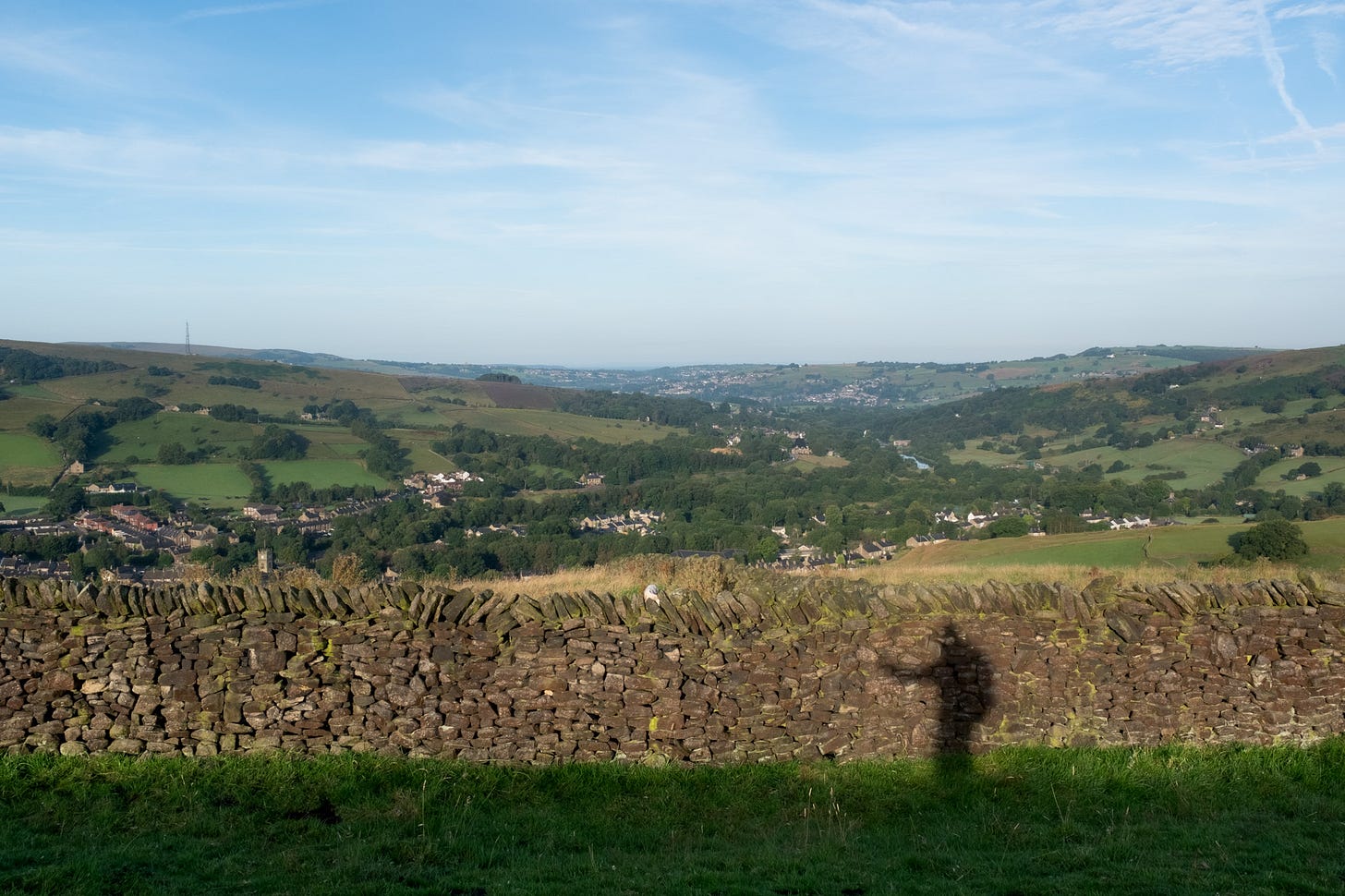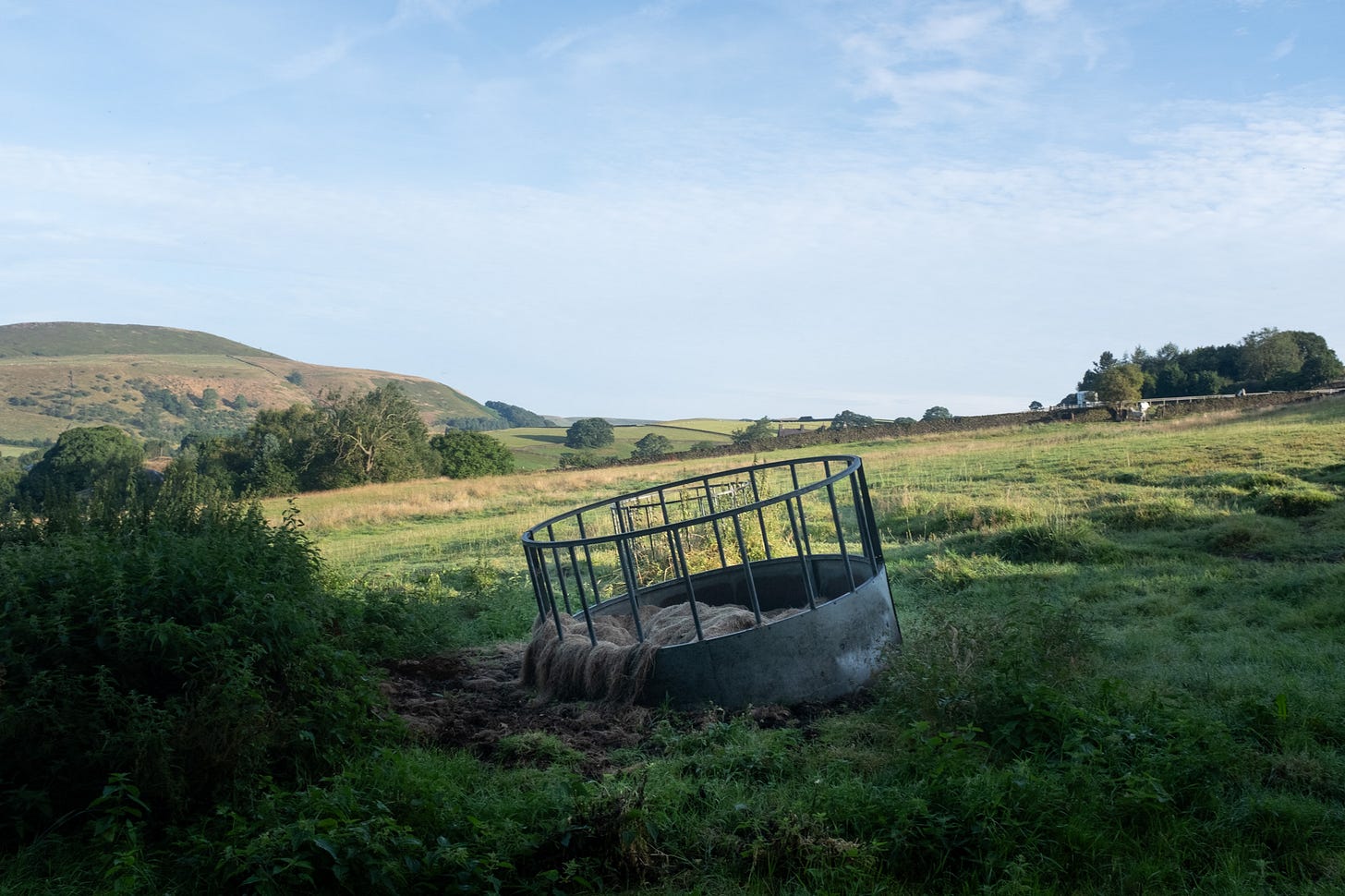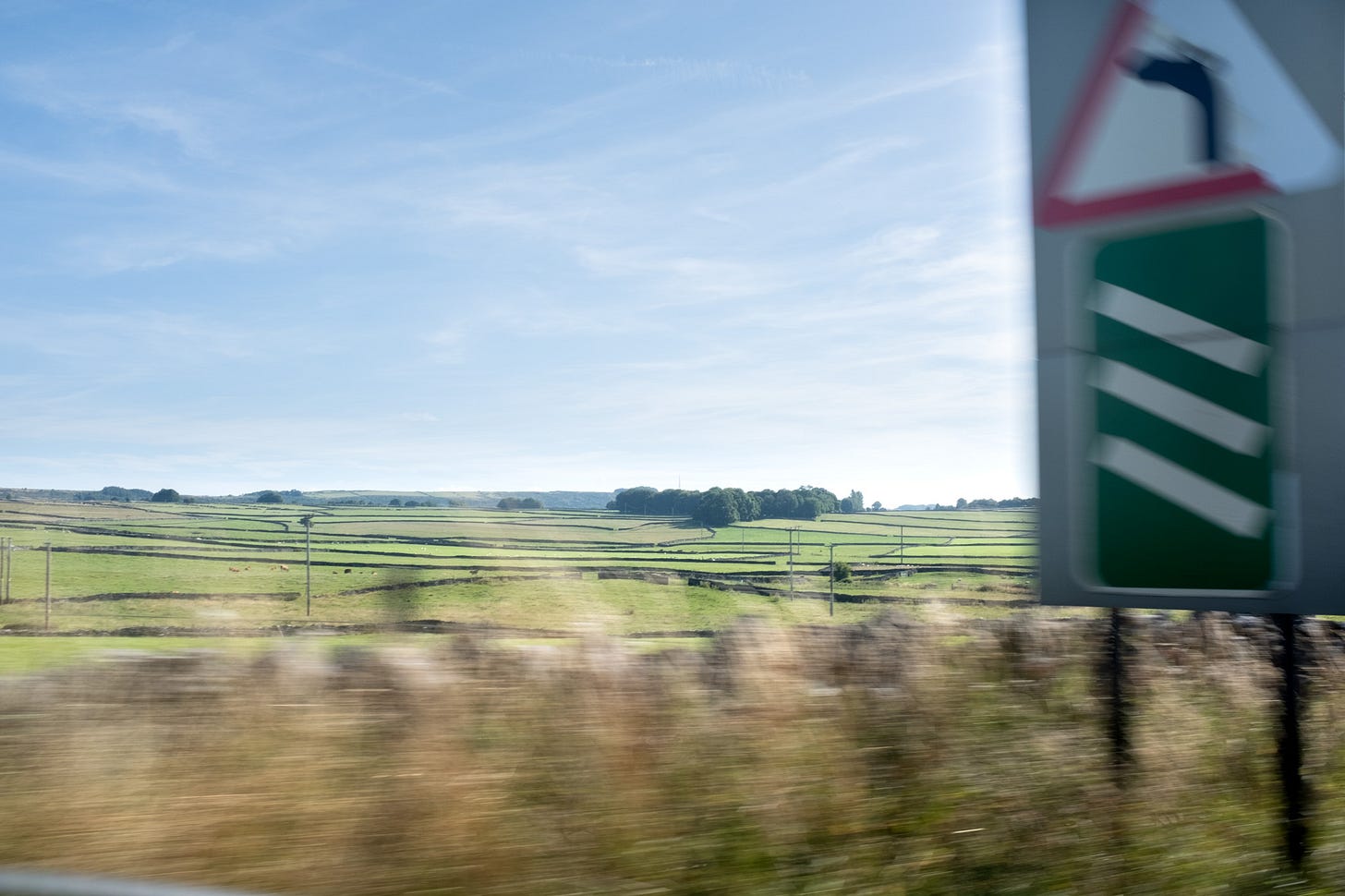This was the zenith, the high point, the peak of the arc. I’d come all this way to camp a night in the Peaks, now here I was. I waded through chin-high braken, clinging to a steep slope and dropped into the woods. The trunks were twisted like metal blasted by an explosion. I found a patch of relative flatness behind a rhododendrum. The park rangers would be doing well to find me here.
The midges were unbearable, swarming my face as I erected my tent, clipping poles as fast as I could. I could feel them landing on the thin skin of my temples and crawling into my hair. I itched them in spasms. As soon as the tent was up, I lept in and didn’t leave. It was only 8 pm. Not the evening I’d hoped for.
I slept badly, pitched at an angle. The slope was steeper than I’d realised, and I was bent over a root. At one point, I awoke to voices. Then my canvas flashed white from a torch beam. I sat up terrified. Visions of awful things. I croaked a timid ‘hello’, but there was nothing more. I slept even worse after that. My dreams were like treacle. I had sleep paralysis twice, imagining footsteps approaching the tent, unable to do or say anything, just lying there desperately trying to move, locked in fear. I’ve never quite got the hang of wild camping.
In the morning, I could see the midges silhouetted on the canvas, waiting for breakfast. I jumped out, packed up as fast I could and noticed another tent barely 50 meters away. That explained the voices. I guess it made sense that it was busy round here. It was a warm weekend and the centre of Manchester was only 14 miles away.
It was, at least, a mighty fine morning. The sun was streaming through the oak trees and the moss was alive with it, singing on the trunks almost. Even the midges looked magnificent, each with a tiny gold halo that turned them into minuscule swirling angels.
Out of the woods, through the braken and onto the moor. It wasn’t yet 7, and I had it to myself, all a lilac pink in the morning light. I surveyed the scene. The moors sloped gently away to the distant hills. The cities beyond were not yet awake. Moments like that make a sleepless night on a root worth it.
I wandered back to the village. The shop was open, the sun streaming through the windows onto the trays of vegetables and packets of golden confectionary. I got a cup of tea and a banana then set off along the old railway track to the main road.
This part of the world has lived a funny sort of life. In feudal times, it was so remote it didn’t even have a lord. The few that lived here paid their tithes to a bishop worlds away in Wales. Then came industrialism and suddenly mills sprouted like ugly square mushrooms. The population accelerated. Quarries and mines clawed at the earth. Wool, calico and cotton spinning made a racket in the quiet moorland air.
The railway on which I walked, from Hayfield to New Mills and Manchester, once transported the two arms of industrialism: resources to the city, and tourists from it. Then as the tide of industry peaked and receded, shipped off to some other part of the world, these discarded villages returned once more to the quiet rural life. The mills are now just monuments clinging to their steep ravines. Some have become flats, others are just derelict.
I reached the main road. An ugly, fast scour through the valley. Only two cars passed before I got a lift.
There were three generations in the car. Lin in the front with me, Jessie in the back with her son and daughter who screamed unhappily. “Sorry about the noise,” Jessie said as she squeezed between them.
Jessie was busy with the children, so Lin and I set to chatting. “You’re my first hitchhiker,” she said. I asked what made her stop. “I just saw you there and thought ahhhh.”
They were driving to Comic-Con in Matlock, 40 minutes away. It was only a small one compared to the gatherings they have in London, but they were going to see The Mandalorian. Jack on the backseat was into it. Though he didn’t sound that excited.
Lin said she was a Mancunian born and bred. In fact she came from the same neighbourhood as Oasis, though was slightly older. Her cousin’s husband had been the drummer in the band, but he left before they got big to get married. The band played at his wedding and Lin remembered it well. It was in the days when they were young and on the dole, before they were anything but kids making a noise. Lin thought there’d be a video of it somewhere at home, she’d have to dig it out.
Noel used to deliver her mum’s newspapers in the morning and both brothers went to the rival school. It was catholic and there were always fights.
She said it was much tougher for musicians now. She had a colleague who played in a band called the Purple Hearts. They had a gig in Nottingham’s Rock City the other week. “Guess how much he got paid for it?” She asked. “25 quid.”
Lin worked as a graphic designer in a printing business. She was putting together library cards mostly. They were eco-friendly, made from two pieces of biowood glued together with eco-glue.
She’d worked in printing since she was 15. Her dad used to fix printers. She went with him once and the company offered her a job. They needed a typist. We agreed it was an industry people would always need. For a brief time, she worked for a company that did NHS forms, but after Covid, the business was sold. She became a dinner lady, then found this job printing library cards. Full circle back to printing.
We’d driven past Buxton and were en route to Bakewell. Lin said she’d show me Morsal Head since we were going past it, a beautiful old viaduct that runs across a valley. Jessie stayed in the car with the kids while we got out to look. There were a few tourists in shorts and tight socks, entire bodies engaged in photographing the scene.
It was beautiful, especially on a day like that. The bridge cut across the dale, its handsome stone pillars dropping gracefully to the valley floor. I suppose age gives everything a patina. You wouldn’t say a motorway bridge was beautiful now, but give it a few decades, and you might. The past is comforting and safe, steam trains are quaint. Motorways will be one day.
It’s worth remembering the contemporaries though. John Ruskin said this of the bridge in 1871:
“There was a rocky valley between Buxton and Bakewell, once upon a time, divine as the Vale of Tempe... You Enterprised a Railroad through the valley – you blasted its rocks away, heaped thousands of tons of shale into its lovely stream. The valley is gone, and the Gods with it; and now, every fool in Buxton can be in Bakewell in half an hour, and every fool in Bakewell at Buxton; which you think a lucrative process of exchange – you Fools everywhere.”
Now, the railway’s gone. The old track’s just for walking, but you can drive from Buxton to Bakewell in 20 minutes.
Lin said she only knew the view because she drives this way to see her daughter. She knows the route like the back of her hand now. She told me her daughter’s fiancée had died last year. The wedding was to be in August, but he died of Sepsis in February, so it never happened.
He had a sore arm one day so had gone to hospital. They told him it was a torn muscle from the gym but it got worse, and at 4 am that night, he got out of bed to go back. Lin’s daughter never saw him again.
They thought perhaps it was a spark that caused the infection. He was a welder, so it seemed the most likely cause, but no one knew. He was a big man, over 6 feet tall. “A 6ft man taken down by the tiniest germs,” Lin sighed.
The fields opened up again and the cows were lying down. “It must be going to rain,” I said questioningly, looking at the clear blue sky.
“Huh,” Lin replied, “I always heard if the cows are lying down, it’s not going to rain. Must be because I’m from up north…!”
It didn’t rain all day—it must be that I was just wrong.








